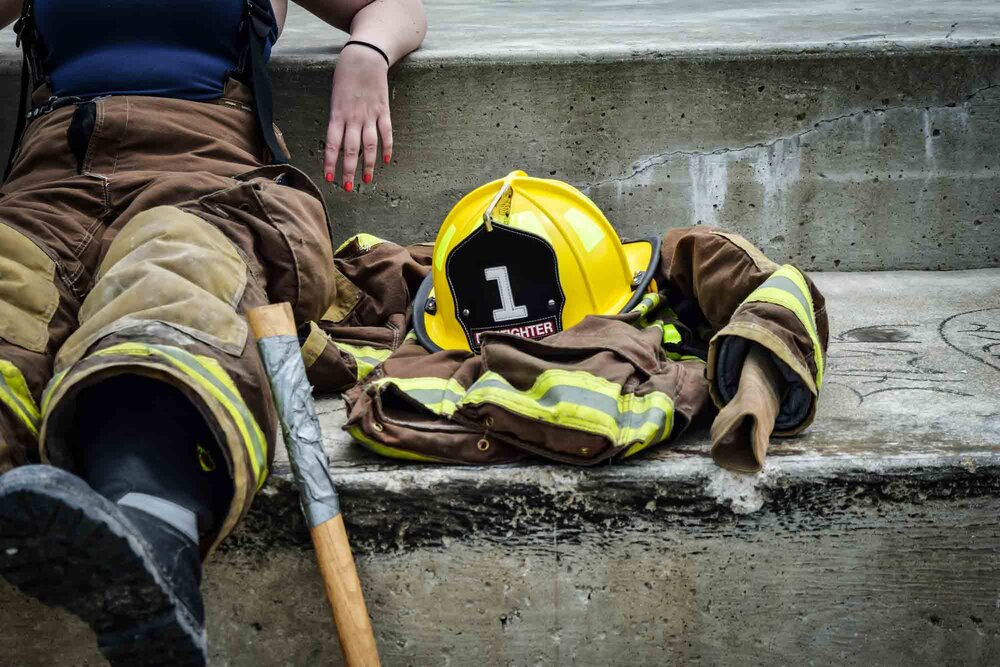Firefighting & Menopause

By: Michelle Bogle
Prioritizing one’s health is critical when navigating the rough waters of menopause.
Menopause is rarely a topic of discussion around the firehall, but it’s a biological transition that all female firefighters face. While saving lives on the frontlines, female firefighters are going through “the change of life” — and for some, this can include debilitating symptoms that unfortunately go unspoken since menopause is often a taboo subject.
What is menopause?
Menopause is a natural part of the female aging process and the point where menstruation ends. Women are most likely to experience natural menopause between 40- and 60-years-old with the average age being 51. However, this hormone-driven transition can start four-to-eight years earlier with peri-menopause when estrogen, progesterone and androgen levels begin to decrease. When this occurs, mild to severe physical symptoms emerge, including hot flashes, menstrual irregularities, night sweats, skin irritation and changes in bone and muscle strength. Some women also experience depression, anxiety, mood fluctuations, sleep deprivation and cognitive impairment.
How to increase support within the fire service?
Like any health and wellness concern, menopause deserves a spotlight in the workplace. It’s one of the many health issues that compound stress and burnout in an already high-risk career and has a strong connection to a female firefighter’s overall well-being.
To help increase support and understanding about menopause within the fire service, proper training and awareness are important.
This should include:
- Ensuring fire service members have a widespread understanding of menopause, its symptoms and how it impacts female firefighters.
- Identifying health policies that can support those experiencing the various stages of menopause.
- Encouraging all fire service members to treat menopausal comrades with respect and understanding.
- Providing support to female firefighters who may feel they have been discriminated against because they are menopausal.
- Identifying internal or external women’s groups that female firefighters can tap into for additional support.
- Encouraging fire service members who have gone through menopause to share their experiences and normalize their challenges to empower other women in the line of duty.
How can menopausal firefighters help themselves?
Prioritizing one’s health is critical when navigating the rough waters of menopause. Women should be proactive and consult with a healthcare provider about managing their symptoms and to ensure that they are not related to other causes.
Other helpful steps include
- Eating a balanced and healthy diet at regular intervals
- Staying hydrated
- Wearing natural fibres under protective fire gear to regulate body temperature
- Exercising regularly to maintain fitness and aerobic capacity
- Performing weight-bearing exercises to maintain bone density and muscle strength
- Quitting smoking
- Limiting caffeine and alcohol
- Reducing stress
- Speaking to a trusted superior or peer about symptoms
- Sharing experiences with other firefighters who have gone through menopause or are also menopausal
For more information about menopause and healthy aging, visit the North American Menopause Society (NAMS) at www.menopause.org for additional resources and supports.
Photo By Pexel ImagesPodcast
Contests & Promotions
















